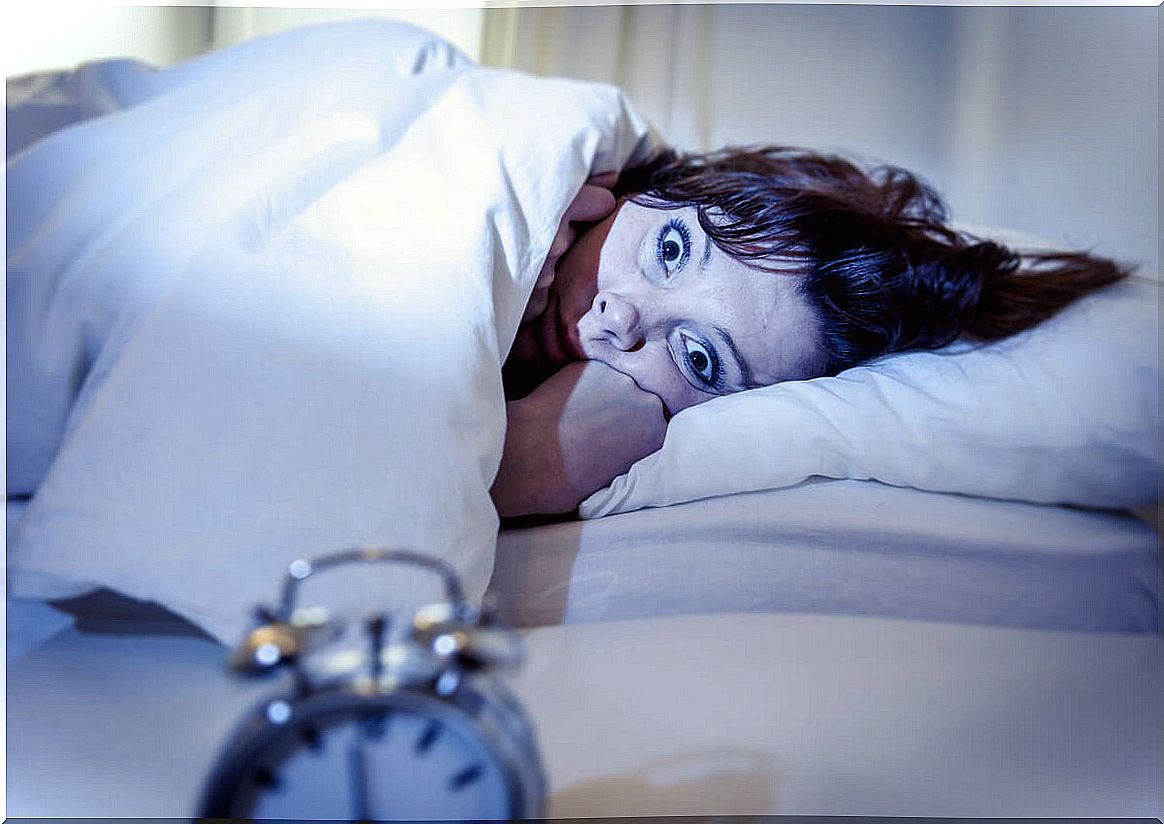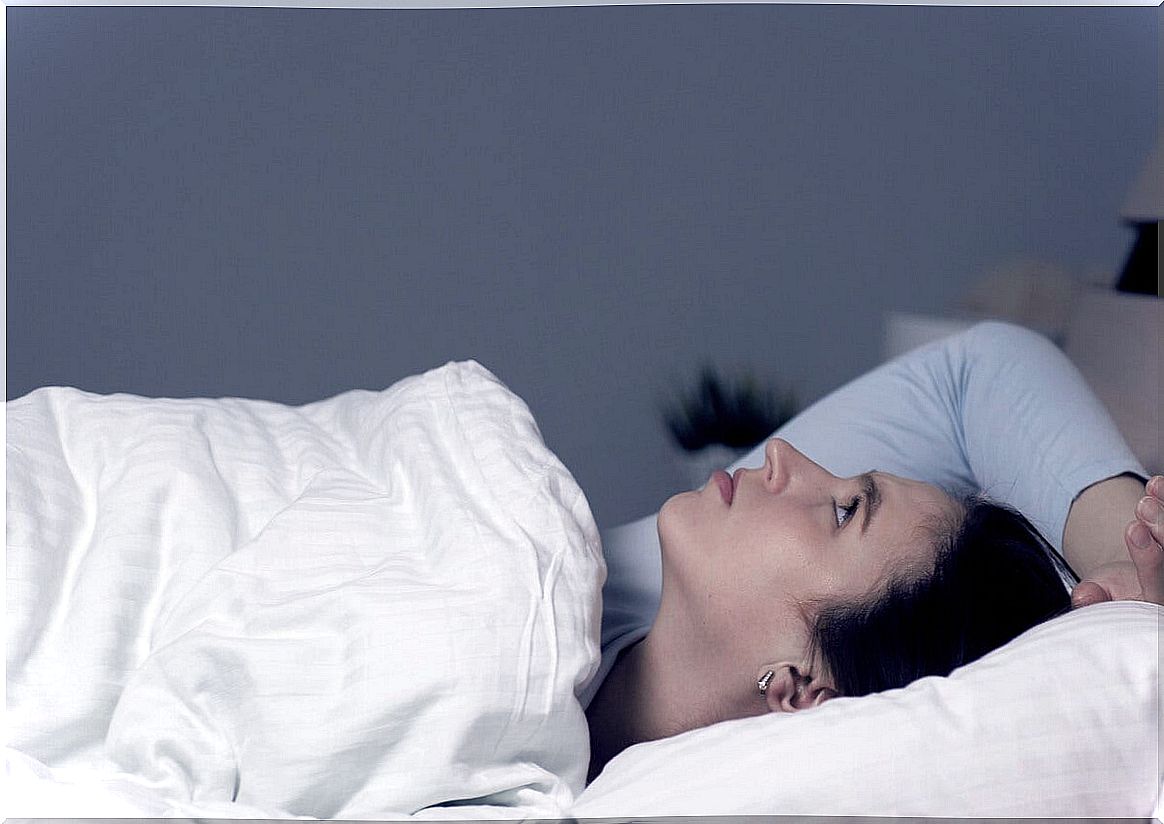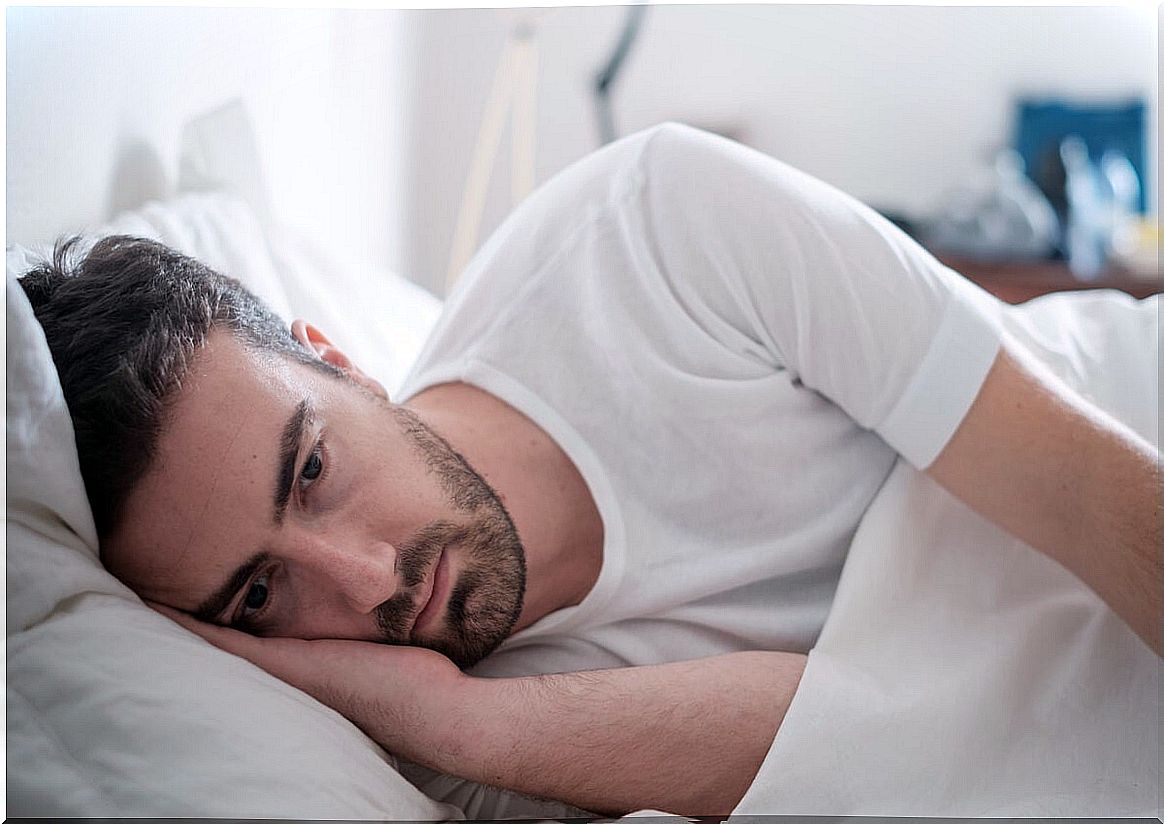Somniphobia: Fear Before Going To Sleep

Somniphobia is a complex disorder that greatly deteriorates the quality of life of those who suffer from it. It is about the fear of falling asleep, because you have the idea that something terrible can happen during sleep, such as dying, never being able to wake up again or suffer some catastrophe.
Of course, those who suffer from somnophobia also suffer from insomnia, often induced by themselves. In some people the fear of falling asleep is so intense that they prefer to deprive themselves of it so as not to allow their fear to come true.
Contrary to what can be assumed, somniphobia is a very common disorder. It is estimated to be the third most common phobia in the world. Not in all cases it becomes extreme, but when this occurs the situation is so difficult that it can lead to serious health problems.

What is somniphobia?
Somniphobia is defined as an irrational and excessive fear of the possibility of falling asleep. The idea of immersing yourself in sleep causes deep stress, and can even generate a panic attack. Once asleep, the person suffering from this fear does not usually wake up; however, before there is a very intense apprehension.
The content of fear is usually the idea that they are going to die in their sleep. However, there are other fears as well, such as the idea that something irreparable will happen while you are resting or that the dreams themselves will take over and you will fall into a kind of madness.
Usually the first feeling of stress occurs when the night begins and it is time to sleep. Most only do it when they are really exhausted. There are even cases in which the affected people stop sleeping for several days, victims of their irrational fear.
Symptoms and causes
People with somniphobia have symptoms similar to those that occur in any phobia. The most obvious of these is, of course, stress, which turns into fear and sometimes terror. Additionally, there may be the following manifestations:
- Acceleration of heart rate and respiration.
- Tremors, dizziness, and nausea.
- Increased blood pressure.
- Catastrophic thoughts about what can happen during sleep.
- Confusion, drowsiness, and sweating.
- Greater emotional sensitivity.
- Deep desire to escape the situation.
Somniphobia occurs as a result of an unconscious association between the act of sleeping and an unprocessed traumatic experience. This experience is not necessarily extraordinary, but a fact that had a great emotional impact on the person.
This experience is not necessarily related to something that was lived during the time of rest, although it is frequent that there are symbolic elements that have forged that association. In many cases, these events do not want to be consciously remembered by the affected person and, therefore, they manifest themselves in this irrational way.

Effects and treatment
The effects of somniphobia can be devastating. Difficulties sleeping are physically and mentally deteriorating the person. The most common is that this disorder ends up generating depression, as well as problems with attention, concentration and performance in daily life. Memory is also often impaired.
Lack of adequate rest causes changes in the immune system and that is why somniphobia also becomes a risk factor for developing various diseases, including cancer. Similarly, there is irritability and difficulty in having healthy social relationships, for which the quality of life as a whole is seriously affected.
There are several alternatives for treating somniphobia. Psychoanalysis may be very appropriate, but it does not yield quick results. A suitable alternative may be a cognitive behavioral therapy, in which a systematic exposure to fear is carried out, in a safe environment. This can help dilute the associated irrational fears.
This disorder can also be treated with relaxation techniques ; These contribute to the anxiety not growing to the point where it prevents sleep. Likewise, sleep medicine or chronobiology can provide very valuable tools to overcome this situation. In this, as in so many cases, the intervention increases its effectiveness if it is started early.









